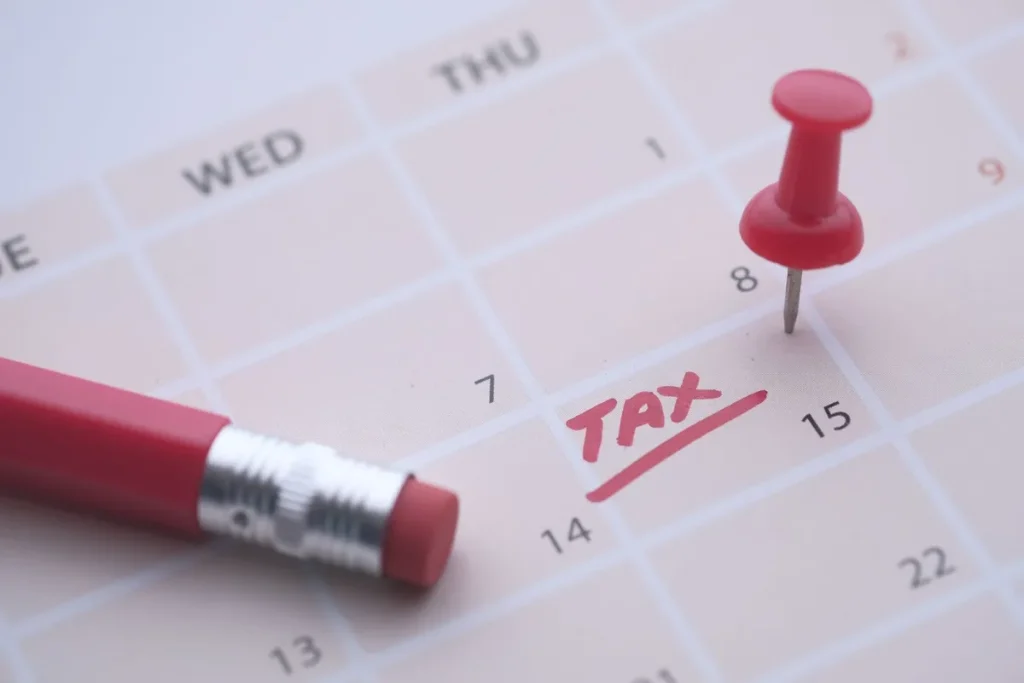What happens if you miss the tax deadline? First, don’t panic. While missing the April 15 deadline can lead to penalties, interest, and other consequences, there are still options available—especially if you act quickly.
Whether you missed the deadline by a day or a few weeks, the IRS imposes automatic penalties that can grow fast. But the good news is, the sooner you file and address your balance, the more control you have over the outcome. You may even qualify for tax relief programs that can reduce or remove penalties altogether.
In this article, we’ll break down exactly what happens if you miss the tax deadline and share five smart moves you can take to limit the damage and get back on track—especially if you’re already feeling overwhelmed.
1) File Your Tax Return ASAP
If you’re wondering what happens if you miss the tax deadline, your first priority should be to file your tax return as soon as possible—even if you can’t pay what you owe right away.
The IRS charges a Failure-to-File Penalty of 5% per month on any unpaid taxes, up to a maximum of 25%. That means a delay of just a few months can add thousands of dollars to your bill. And if your return is more than 60 days late, you’ll face a minimum penalty of $485 or 100% of the tax owed—whichever is less.
Filing late is still better than not filing at all. The sooner you submit your return, the sooner you can stop this penalty from growing. This applies whether you’re filing as an individual, freelancer, or small business owner—getting your return in the system is the first critical step to limiting penalties and moving forward.
2) Pay What You Can Right Now
Once your return is filed, the next step is to pay as much as you can toward your tax balance—even if it’s not the full amount.
Here’s why: the IRS charges a Failure-to-Pay Penalty (not to be confused with the failure to file penalty) of 0.5% per month on your unpaid balance, not your total tax bill. That may not sound like much, but it adds up quickly—especially when you factor in daily compounding interest on top of it.
By making a partial payment, you immediately reduce the amount those penalties are calculated on, which can save you hundreds or even thousands of dollars over time. For example, if you owe $10,000 but pay $4,000 now, your penalties and interest will only apply to the remaining $6,000—not the full balance.
Whether you’re an individual taxpayer or running a small business, sending in a partial payment shows good faith and helps limit long-term costs. It also makes it easier to set up a payment plan with the IRS down the line.
3) Request a Payment Plan with the IRS
If you can’t pay your full tax bill right away, the IRS offers payment plans—known as installment agreements—that allow you to break your balance into manageable monthly payments.
Setting up a payment plan doesn’t erase your penalties, but it can prevent more serious collection actions, such as tax liens, levies, or wage garnishments. It also keeps you in good standing with the IRS as long as you make your payments on time.
In most cases, if you owe $50,000 or less, you can apply for a payment plan online without speaking to an agent. And for small business owners or self-employed individuals with more complex tax situations, longer-term agreements are also available.
A payment plan won’t eliminate your debt overnight, but it creates structure and gives you time to catch up—which is far better than ignoring the problem and hoping it goes away. When it comes to missing tax deadlines or dealing with the IRS the best approach is always to be proactive and address issues quickly.

4) Ask About Penalty Relief
If this is your first time running into tax trouble, you may qualify for penalty relief—and that could mean significant savings.
The IRS offers a program called First-Time Penalty Abatement, which may allow you to remove or reduce certain penalties if you’ve filed and paid on time in previous years. Even if you don’t qualify for that, you might still be eligible for reasonable cause relief if your situation involved a serious life event like an illness, natural disaster, or financial hardship.
Many taxpayers don’t realize these options exist—and the IRS won’t automatically apply them. You have to know what to ask for and how to request it.
This is where working with a tax professional can really help. At Andrin Tax Relief, we know how to navigate these requests, and we’ve helped clients successfully eliminate thousands of dollars in penalties they didn’t think could be removed.
If you’ve missed the tax deadline and are facing growing penalties, exploring penalty relief could be the difference between financial stress and a manageable outcome.
Read more: Understanding Penalty Abatement for Reasonable Cause
5) Get Help from a Tax Relief Professional
Dealing with the IRS can feel overwhelming—especially if you’re already behind or unsure what steps to take next. That’s where a qualified tax relief professional can make a big difference.
Instead of navigating penalties, payment plans, and IRS notices on your own, a professional can help you:
- Understand exactly what you owe and why
- Identify penalty relief opportunities you may not know about
- Communicate with the IRS on your behalf
- Negotiate affordable payment terms
- Avoid collections and wage garnishments
At Andrin Tax Relief, we work with individuals, freelancers, and small business owners who are facing IRS debt and missed deadlines. We specialize in turning around tough situations and giving our clients a clear, personalized plan forward.
If you’re asking yourself what happens if you miss the tax deadline, the answer depends on what you do next. Getting expert guidance now can save you from bigger problems later—and bring peace of mind sooner than you think.
Final Thoughts: Take Control Before Penalties Add Up
Missing the tax deadline is obviously not ideal, but it’s also not the end of the road. What matters most is what you do next.
Whether you’re behind on filing, unsure how much you owe, or worried about how to pay, there are steps you can take right now to regain control. The important thing is to avoid letting fear or uncertainty keep you stuck. Whether you’re dealing with a growing balance, late filings, or mounting penalties, there’s a path forward—and it starts with getting informed and taking the next step.
Need help figuring out what that next step looks like?
Contact us today for a free consultation and let’s talk about how we can help you get back on track.




